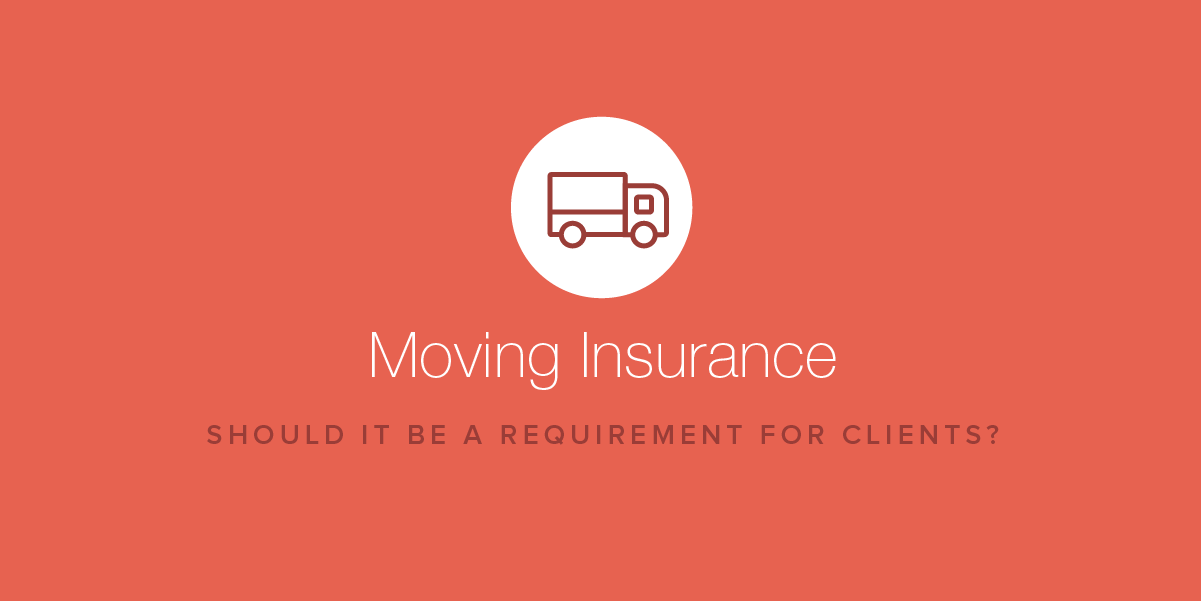Should Moving Insurance Be a Requirement for Your Moving Customers?
- February 28, 2019
- By: Vonigo
Moving services, including everything from residential to commercial, warehousing, storage, moving insurance, and transport, make up a steadily growing industry. The industry generated $18 billion in the US in 2018, growing 2.5% in the last 5 years. Its employment numbers also jumped by nearly 112,000 people last year.
Moving anything involves risk, especially when looking at cross-country moves of personal or business possessions. If your company is transporting or storing property, then you’re also accepting that risk. That translates to liability if something goes wrong.
Moving insurance covers damages or loss to your clients’ property while it’s in transit. It can protect both you and your client in the case of loss or damages. So should moving insurance be a requirement?

How Does Moving Insurance Protect Your Client?
There are several types of moving coverage, and each of them has a different focus or coverage level. Moving companies aren’t allowed to offer insurance, per se. What you’re really offering your client is a statement of liability.
Released Value Coverage
Also called basic carrier liability, this type of coverage is the minimum coverage required by federal law. If you’re operating a moving or transport company, then you already offer this by law. It’s free to your client, although it certainly won’t cover all of their moving insurance needs. It means you only have to pay up to $0.60 per pound of lost or damaged goods. This means that if your client’s one-pound electronic device is ruined in transit, the coverage won’t replace it.

Full Value Protection
This type of coverage is also federally mandated for you to offer your client. While it would need to be purchased by your client, it means you pay for the replacement value of a lost or damaged item. You as the company can also opt to have it repaired or replaced with a similar item.
Separate Liability Insurance
You may or may not offer this option to your clients. It covers the amount of insurance they purchase, minus the $0.60 per pound that the basic carrier coverage offers. Let’s say your client purchases a $20,000 separate liability policy on a 2,500-pound load. That policy would cover $20,000 worth of replacement, minus $1,500, for a total of $18,500 of coverage. And you’re liable for that amount.
Other Policies
Your client’s own insurance company may offer a policy for their move as well. That’s not something you’ll need to deal with. Still, you’ll want them to provide proof that there is a policy in place.
What Will Your Client Gain?
Moving is especially stressful. Being separated from their worldly possessions during the process — sometimes for a few weeks — can add significantly to that stress. No client wants to worry about whether their household goods are safe; while insurance certainly can’t replace the irreplaceable, it can help with replacement or repair when necessary.
How Does Moving Insurance Protect Your Business?
While moving insurance helps your client, it also protects you and your business by reducing your liability. If your client has moving insurance, then you’ll have lower liability in case of a loss or damage incident.
In the moving business, it’s not a question of “if” a claim for loss or damages is filed. It’s a question of “when.” Having that insurance already in place from your client means less hassle for you.

Are There Any Drawbacks?
Moving is expensive, and most clients will be looking for ways to cut costs. The first place they often look is with insurance because coverage can be costly.
In addition, your client will need to itemize their belongings. Instead of simply outlining a general value for their household goods, they’ll need to list each item and its value. That can be time-consuming.
Having to deal with your client’s third-party insurance company can also be a hassle. But it’s better than finding that you are liable for a much higher amount than you can afford.
Should It Be Required?
Requiring your clients to accept a liability statement or bring their own third-party policy ensures that one incident doesn’t ruin your business financially.
Not only does requiring insurance help protect your company
The cost might be prohibitive to prospective clients. However, having your business properly protected is worth far more than a few cost-conscious clients.
Interested in finding out how moving company software can help you grow your business and make it more profitable? Book a free, private demo of Vonigo.


